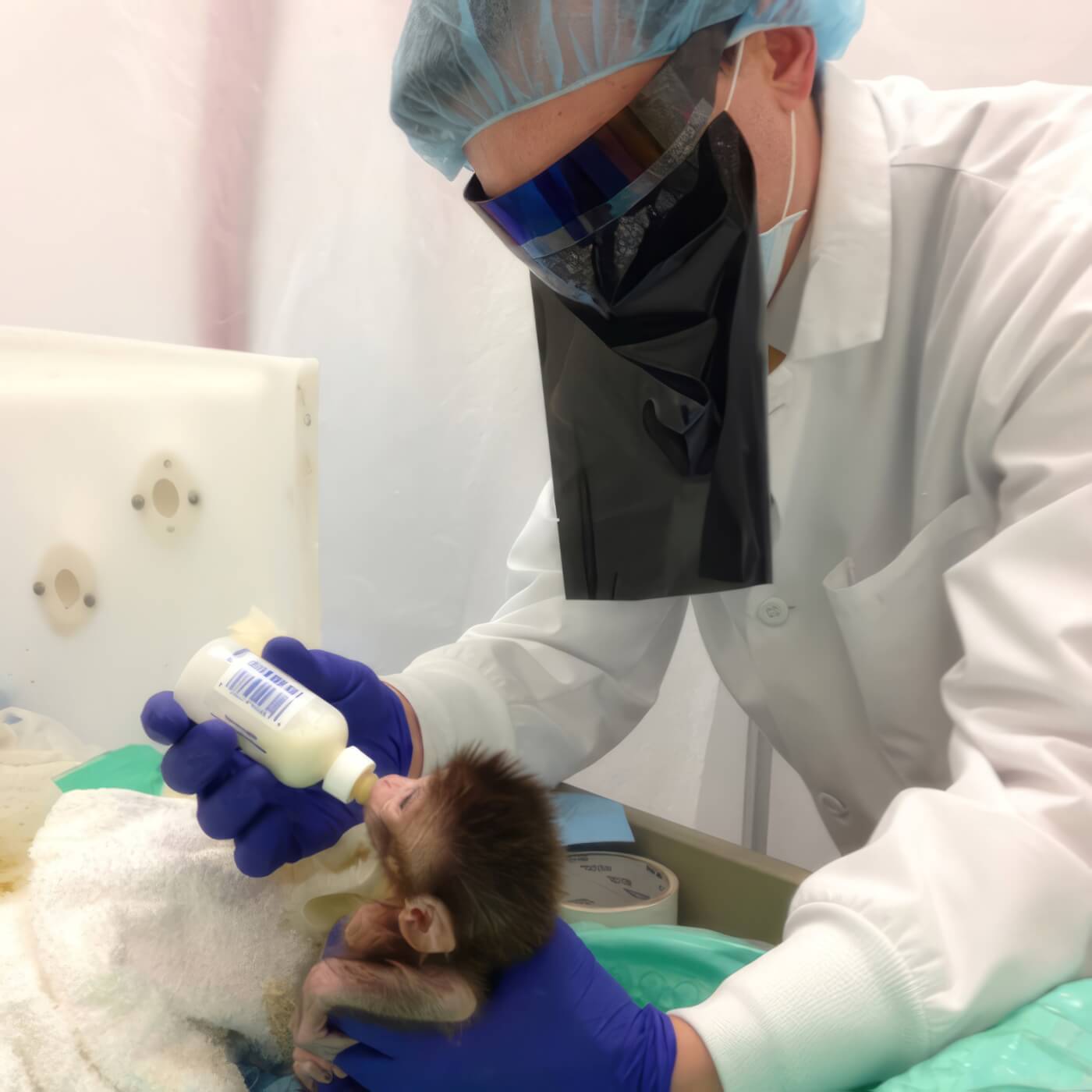A 100% Failure Rate!
PETA Shows Neuroscience Experimenters’ Massive Harm, Zero Benefit
People who suffer from neurological or psychiatric conditions are desperate for relief. But medications to treat these disorders that are deemed “safe and effective” in animal experiments have among the highest failure rates in human drug trials because they don’t work and/or are dangerous. More than 1,000 drugs that seemed successful in experiments intended to mimic human strokes in animals failed to help stroke patients. Yet many neuroscience experimenters continue to torment animals in a futile attempt to someday extrapolate the results to humans, who are biologically vastly different. PETA entities are exposing the shoddy science and horrific cruelty that pass for much “neurological research” and pushing for the adoption of superior, human-relevant methods.
90 Years and Millions of Dollars Later, Not a Single Treatment!
Many experiments targeted by PETA have been going on for decades at an enormous cost – despite failing to benefit human health 100% of the time.
US National Institute of Mental Health experimenter Elisabeth Murray saws off a portion of monkeys’ skulls and injects toxins into their brains to inflict brain damage. She may also suction out or burn part of their brains. Murray then terrifies the monkeys with fake snakes and spiders in an attempt “to study human neuropsychiatric disorders.” After 30 years and US$47 million, her experiments haven’t resulted in a single treatment. PETA is protesting – and pointing out that researchers studying the role of specific brain regions in human emotion and behavior are producing reliable, applicable results.

At the University of Massachusetts–Amherst, Agnès Lacreuse drills holes in tiny marmoset monkeys’ skulls, threads electrode leads through their abdomens, zip-ties them into restraining devices, and overheats them to simulate hot flashes – even though marmosets don’t go through menopause. As part of PETA’s campaign against these cruel and wasteful experiments, actual people experiencing menopause – including Cassandra Peterson (aka Elvira) and PETA Honorary Director Lily Tomlin – have challenged experimenters to study them instead.

Harvard University’s Margaret Livingstone has spent 40 years (and more than US$32 million) tormenting animals in useless experiments. She tears baby monkeys away from their mothers and sews their eyes shut or forces them to wear strobe-effect goggles for up to 18 months. Steel posts are surgically implanted in many of the infants’ heads or electrodes are put into their brains. The findings? Being blinded for the first months of life interferes with the development of vision and the brain. Livingstone’s recent paper was so worthless that 380 scientists – including Dr. Jane Goodall – and graduate students demanded its retraction.

Shreesh Mysore at Johns Hopkins University cuts into barn owls’ skulls, inserts electrodes into their brains, and bombards them with noises and lights while being paid to gather information on human attention-deficit disorder. The US National Institutes of Health’s own analysis indicates that the experiments have almost no “approximate potential to translate” to human health.

Physicians and Others Are Waking Up to the Waste
As a result of PETA entities’ campaigns against these and other cruel neurological experiments – which have included exposés, lawsuits, scientific critiques, ads, protests, and petitions – many physicians, researchers, lawmakers, and patients have joined the push for change.
Following PETA Germany’s work, that country’s health authority rejected a permit application from Andreas Kreiter at the University of Bremen to continue his invasive brain experiments on macaques, concluding that they were “ethically not justifiable.”
Actor and presenter, Richard E Grant calls near-drowning experiments “distressing for animals and irrelevant to humans.“

PETA’s global initiative to end near-drowning experiments on mice and other small animals (which tell us nothing about human depression) has resulted in a wave of bans, including recent commitments from Australia’s Macquarie University, the University of Western Australia, Colombia’s Universidad del Valle, and more than a dozen UK research schools. BAFTA-winning actor Richard E Grant teamed up with PETA UK to call for an end to the forced swim test, and a dozen cross-party members of the UK Parliament urged the Home Office to abolish it. Australia’s National Health and Medical Research Council (NHMRC) announced that the test must not be used in new projects for modeling human depression or anxiety and that experimenters funded by the NHMRC who are currently using it must provide compelling justification for continuing to do so. The policy will significantly reduce, if not eliminate, use of the test.
Be Part of It!
Ensure that the health charities you donate to fund only sound, animal-free research. Urge your lawmakers to invest in research that works by supporting PETA’s Research Modernization Deal.


